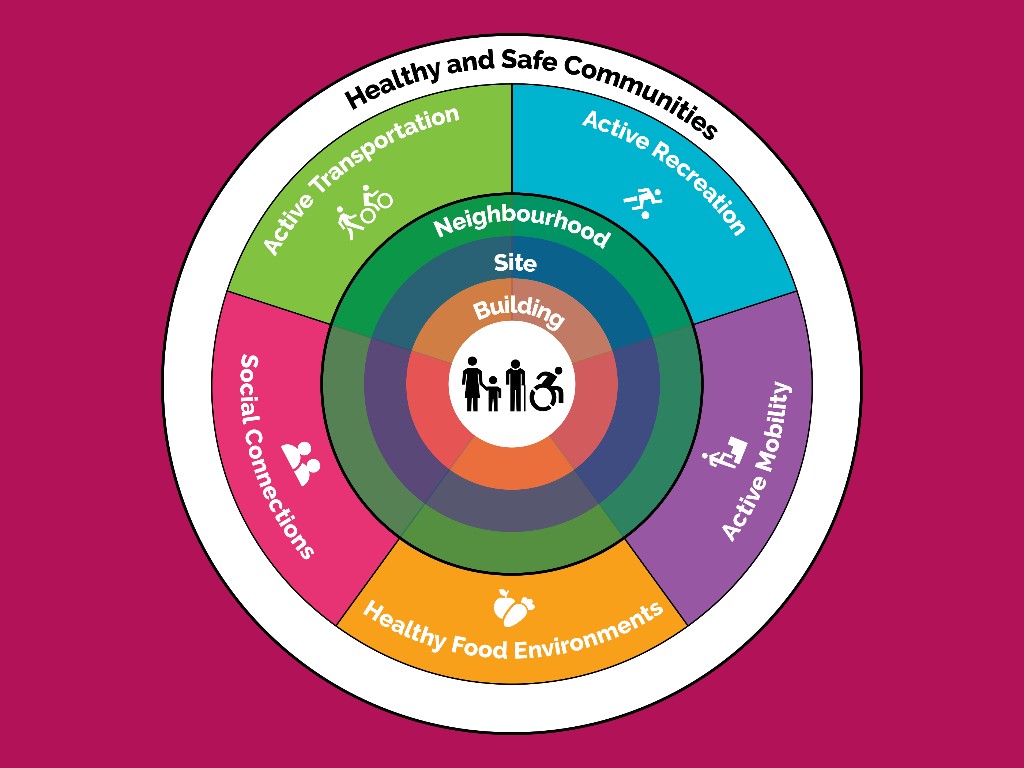Experts from around the world will gather in Edmonton at the end of May to discuss how to build places that are healthier to live in at the Fit Cities Fit Towns Conference.
The third annual event, organized by Housing for Health on May 30 and 31, will take a deep dive into best practices from Canada and beyond to create environments conducive to a healthy lifestyle and strong community.
"In particular, we are interested in improving three key protective factors for health and wellbeing: active living through active transportation, active recreation, and active mobility in buildings; healthy food and beverage access; and social connections," said Housing for Health director Karen Lee, who published a book called Fit Cities in early 2020.
This year's conference will focus on the soon-to-be-released Healthy Community Guidelines, which Housing for Health has been developing with more than 100 partners across Canada and the U.S.
"The guidelines themselves give evidence- and practice-informed strategies to help provide a health lens on the development, planning, construction, and operations of our neighbourhood, site, and building environments so they are more routinely supportive of active living, healthy eating, and social connections," Lee told Taproot.
This aligns with Edmonton's City Plan, which treats health as an integral part of the decisions to be made as the city grows toward a population of two million. Coun. Ashley Salvador will deliver remarks at the conference, as will Leduc Mayor Bob Young and St. Albert Mayor Cathy Heron.
Fit Cities Fit Towns is open to anyone interested in the connections between health and where we live, "from developers and municipal planners, to designers and architects, to those involved in housing and transportation policy, to health sector folks who work on these issues, to researchers from different fields, to community residents interested in these issues and in finding ways to get involved with making their communities healthier," Lee said.
"We hope that all attendees will leave the conference with inspiration and knowledge that they can make a difference and play a role in improving their community and building environments, in both their professional and personal lives," she added.

The Healthy Community Guidelines developed by Housing for Health are to be released shortly before the Fit Cities Fit Towns Conference at the end of May. (Housing for Health)
Housing for Health is an initiative of the preventive medicine division at the University of Alberta's medical school. It is funded in part by a grant from the Public Health Agency of Canada to examine connections between health, housing, and the built environment. Its first two conferences, in 2021 and 2022, were held virtually. This year's version will be hybrid, with in-person attendance at the University of Alberta.
One of the international keynotes will be from Sofie Kvist of Gehl, a planning firm based in Copenhagen that was named for its founder.
"Jan Gehl is well-known for leading Copenhagen and its planning from a car focus in the 1970s to what it is today supporting multiple transportation modes like walking and cycling as major transportation modes," said Lee.
Another international keynote speaker will be Laurie Kerr, an architect from LK Policy Lab who was previously a senior policy advisor for long-term planning and sustainability in New York City during the administration of Mayor Michael Bloomberg.
"Laurie led the processes in NYC to green the building and construction codes and used the greening processes to incorporate health and wellbeing considerations synergistically," said Lee, who also spent time working in New York's health department. "She is going to share lessons of what we can do to make our buildings both greener and more supportive of health at the same time."
Canadian planning and architecture firms such as DIALOG, IBI Group, EcoAmmo, and RPK Architects will showcase different types of housing projects, including "mixed-income housing and affordable housing to institutional projects to recreational projects to retail projects to healthcare projects," Lee said.
Other local presenters include Karen Wilk of the Laurier Heights Community League, who is scheduled to talk about her community's food and fruit forest.
Registration for in-person attendance at the conference is open until May 22. Virtual registration closes on May 28.
